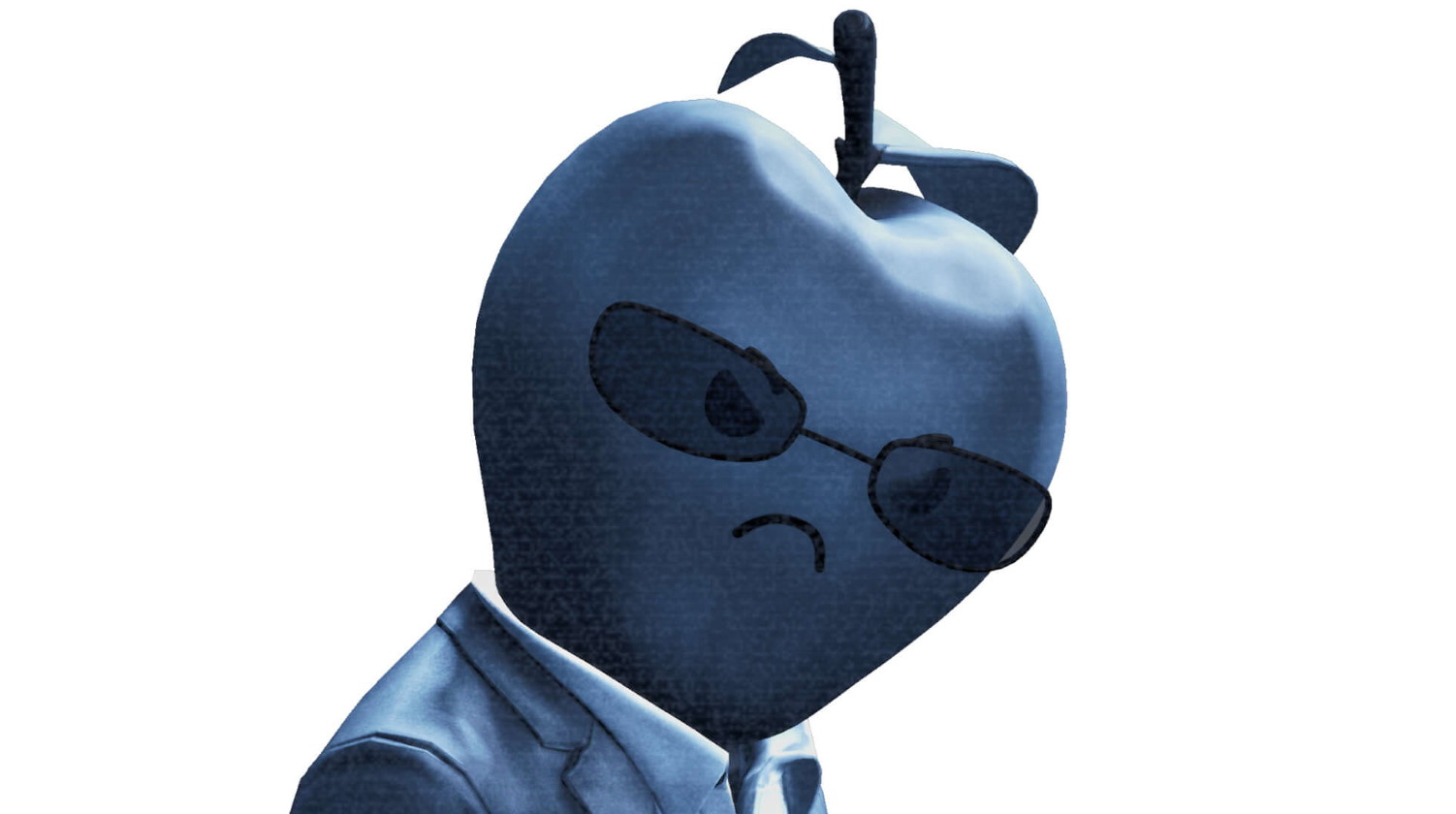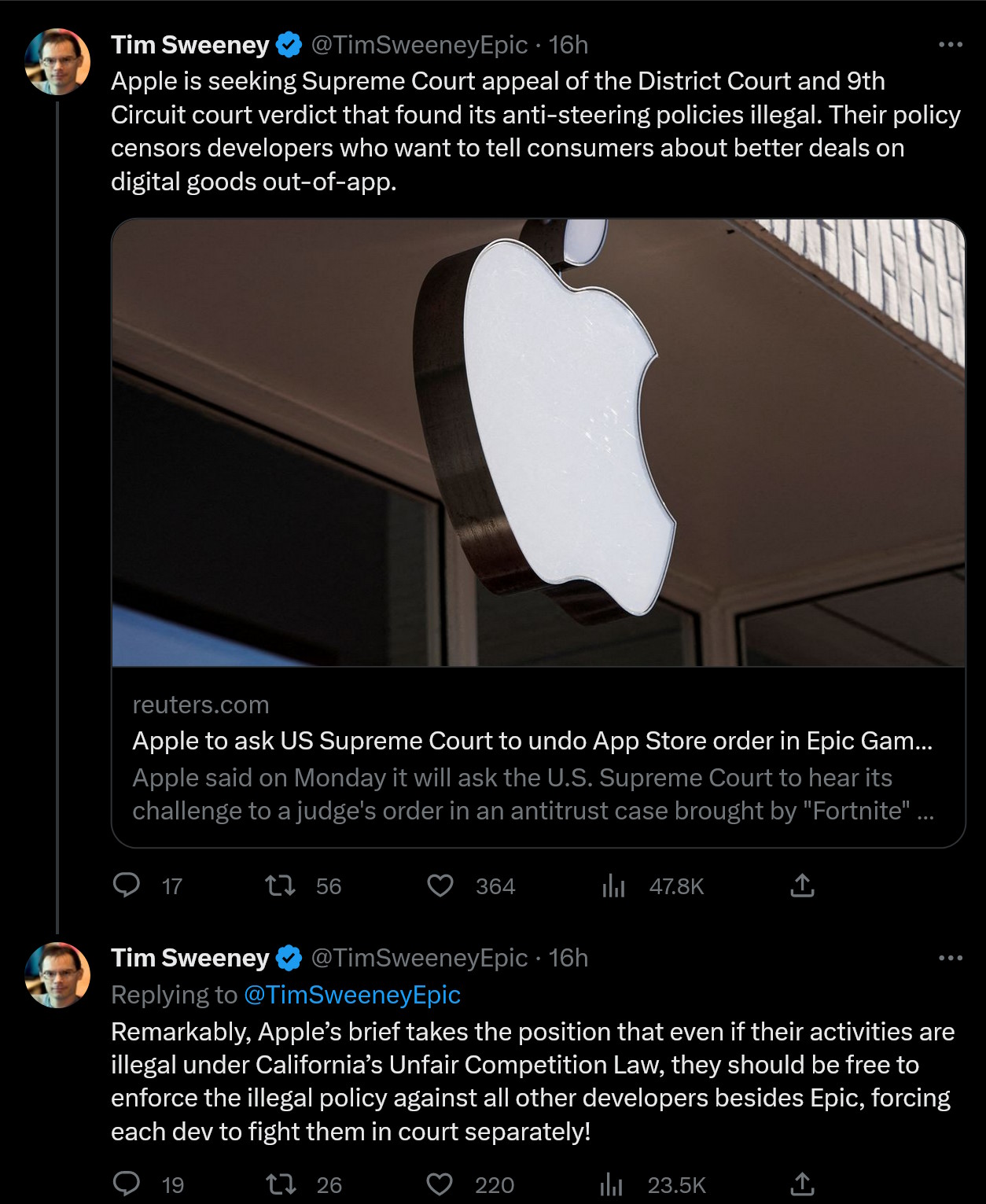Apple and Epic are headed to the Supreme Court
Apple wants Epic's courtroom victory over payment processing overturned, and it's going to the top to make it happen.

The long-running legal beef between Apple and Epic Games is headed to the Supreme Court of the United States. Apple has filed a notice requesting a stay of a lower court injunction against it while it prepares to appeal a 2021 ruling on "anti-steering" practices that ordered the company to allow developers on the App Store to use non-Apple payment options.
The case began way back in August 2020, when Epic theatrically sued Apple over "monopolistic practices" on the App Store. A month later, Apple pushed back, and for the most part it came out on top when the initial ruling was handed down a year later. But Epic landed one good shot when the court declared that Apple's policy of requiring developers to use its in-app payment system was a violation of California's Unfair Competition Law.
The ruling effectively meant that Apple would have to change its policies to allow developers to use whatever payment processor they wanted—so, for instance, Epic would be allowed to offer Fortnite Vbucks for sale directly to gamers on iOS devices, rather than selling them through Apple's system, which takes a 30% cut. Epic and Apple both quickly appealed, and the ruling was put on hold until the appeals process could be completed.
In April, the US 9th Circuit Court of Appeal upheld the 2021 ruling, and after petitions from both companies to reconsider that ruling were rejected, Apple filed notice (via GamesIndustry) that it's taking the case all the way to the top—that is, the Supreme Court of the United States.
Apple said in its most recent filing that the imposition of a sweeping, across-the-board injunction was an inappropriate remedy to a lawsuit filed by a single plaintiff, rather than a class action: "The [appeals] panel never explained why this supposed harm to Epic and its subsidiaries justified an injunction applicable not only to Epic and its subsidiaries, but also to all other US developers."
It also claimed that the appeal panel's ruling on its App Store payment practices "departs from Supreme Court and Circuit precedent," and potentially conflicts with federal laws. Class action lawsuits and universal injunctions "are receiving close scrutiny from Supreme Court Justices, legal scholars, and knowledgeable observers," Apple said, and the Supreme Court is now "poised to take up the important legal question of whether and when a court may issue a universal injunction" outside of a class action context, as has happened in this case.
"This case is important, not only for Apple and its business model, but also for thousands of developers and millions of iPhone users around the country," Apple said. "This Court should not allow a single-plaintiff action to dictate Apple’s policies nationwide while serious legal questions remain unresolved."
Keep up to date with the most important stories and the best deals, as picked by the PC Gamer team.
In response to Apple's filing, Epic Games CEO Tim Sweeney said on Twitter that the App Store policy as it stands "censors developers who want to tell consumers about better deals on digital goods out-of-app."

"Remarkably, Apple’s brief takes the position that even if their activities are illegal under California’s Unfair Competition Law, they should be free to enforce the illegal policy against all other developers besides Epic, forcing each dev to fight them in court separately!" Sweeney said.
Epic has not filed its own appeal to the Supreme Court, but given the way both companies have chased each other up the judicial chain, it may yet do so. Of course there's no indication as to when any of this will happen, but it's reasonable to assume that a final ruling could be many months away.

Andy has been gaming on PCs from the very beginning, starting as a youngster with text adventures and primitive action games on a cassette-based TRS80. From there he graduated to the glory days of Sierra Online adventures and Microprose sims, ran a local BBS, learned how to build PCs, and developed a longstanding love of RPGs, immersive sims, and shooters. He began writing videogame news in 2007 for The Escapist and somehow managed to avoid getting fired until 2014, when he joined the storied ranks of PC Gamer. He covers all aspects of the industry, from new game announcements and patch notes to legal disputes, Twitch beefs, esports, and Henry Cavill. Lots of Henry Cavill.

